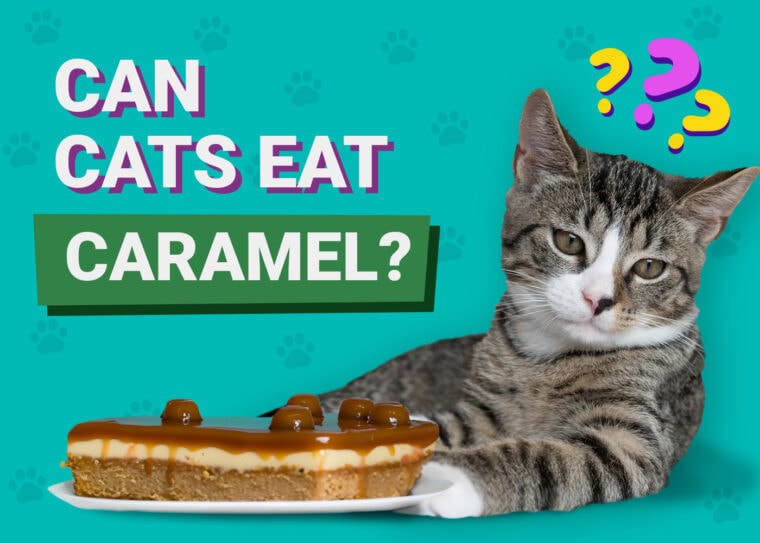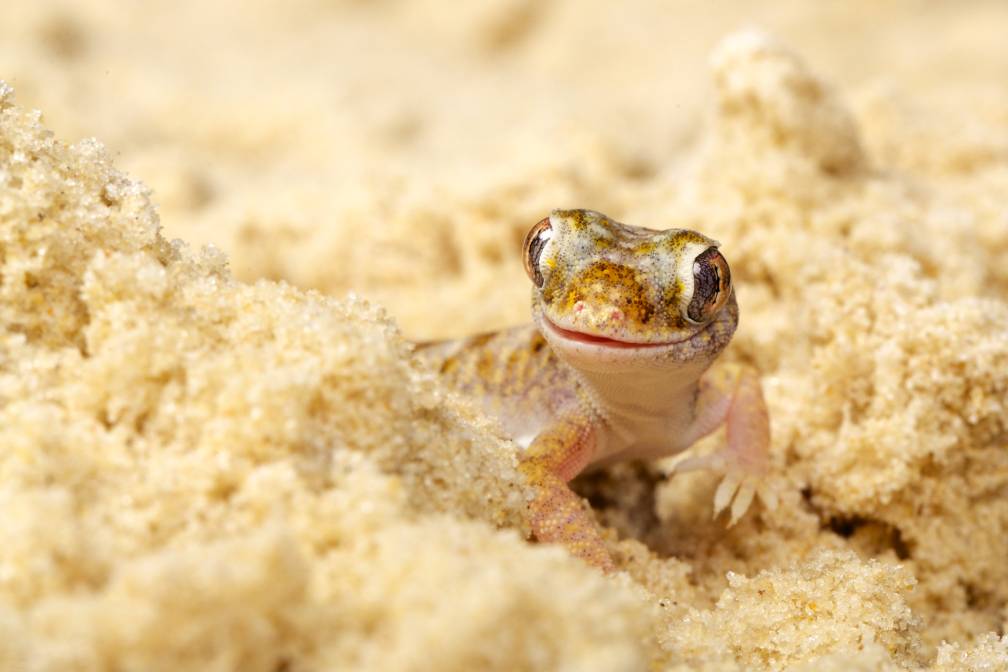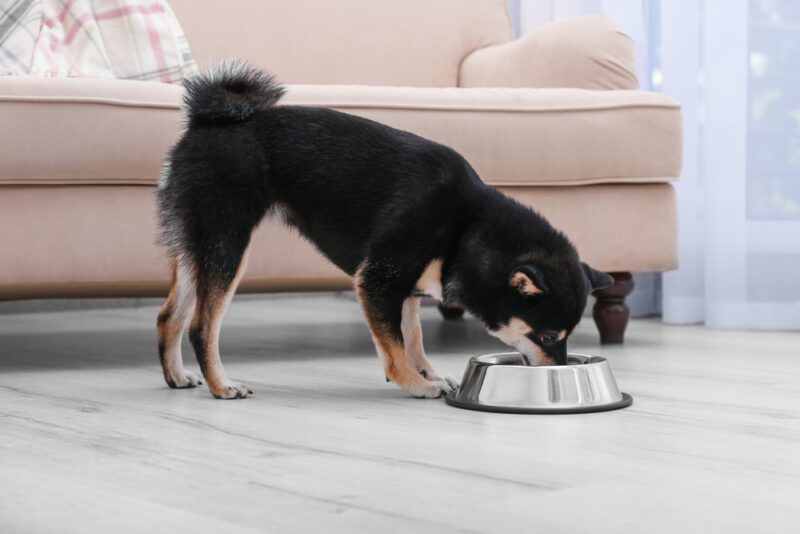
Click to Skip Ahead
Caramel is a delicious treat enjoyed by many people around the world. Its sweet and rich flavor makes it a popular addition to various desserts and snacks, and as a cat owner, you may have wondered whether it is safe to share it with your pet companion. Unfortunately, while pure caramel isn’t toxic to cats, they shouldn’t eat it. Keep reading as we explain the cons of feeding your pet this treat and provide you with healthy alternatives.
Do Cats Like Caramel?
Cats are carnivores with digestive systems designed to process and digest meat, so they may have a hard time with certain foods that humans regularly consume, including sweet treats like caramel. They are better off sticking to meat proteins like chicken, turkey, and fish.

Benefits of Feeding Caramel to Cats
Unfortunately, feeding caramel to cats does not provide them with any significant health benefits. Cats have specific dietary requirements, and caramel does not fulfill those needs. It’s also unlikely that they will like and seek out the flavor of caramel, since they cannot taste sweet things.
Risks of Feeding Caramel to Cats
Sugar Content
Caramel is essentially browned sugar, and excessive consumption can lead to various health issues for cats, including weight gain. Obesity can lead to many health issues such as diabetes and joint problems.
Chocolate Coatings
Many caramel treats are coated or drizzled with chocolate. Chocolate is toxic to cats due to its theobromine content, which can affect their nervous system, heart, and kidneys. Even small amounts of chocolate can harm cats.

Artificial Sweeteners & Preservatives
Some caramel products may contain artificial sweeteners, preservatives like BHA and BHT, and other additives that might harm your pet’s health.
Dairy Ingredients
Some caramel products, such as caramel ice cream or caramel-filled chocolates, may contain dairy. Most cats are lactose intolerant, and consuming dairy can result in digestive upset, including diarrhea and stomach discomfort.
Safe Alternatives for Cats
Cat-Specific Treats
Many pet stores offer a wide variety of treats specifically designed for cats. While they can still be high in calories, these treats are formulated to meet their nutritional needs and are safer options for rewarding your cat and giving them something special.
Meat Treats
Since cats are obligate carnivores, offering them small pieces of cooked meat, such as chicken or turkey, can be a tasty and healthy alternative to caramel. Just make sure to remove any bones, seasoning, or sauces that may be harmful.
Catnip or Cat Grass
Some cats are particularly fond of catnip or cat grass, making them great for treats. You can also use them as interactive toys to provide stimulation and enjoyment for your feline companion.
Knowing exactly what your feline companion can and cannot eat will help you become the best pet parent. Recognizing that not all cat bowls are equal is also key! The Hepper NomNom Cat Bowl sets itself apart from traditional options by catering to the specific needs of cats. The innovative design offers whisker relief via shallow dishes and promotes digestion with a slight bowl elevation. Find out if the Hepper NomNom is right for your cat by clicking here.
At Pet Keen, we’ve admired Hepper for many years and decided to take a controlling ownership interest so that we could benefit from the outstanding designs of this cool cat company!
Frequently Asked Questions

Can a Small Amount of Caramel Harm My Cat?
While a small amount of caramel may not immediately cause severe harm to your cat, it is still not recommended. Cats struggle to digest or metabolize sugary and sweet substances like caramel, and regular consumption can lead to health issues over time, like obesity and diabetes.
Can Cats Eat Any Caramel?
No, cats should not consume any caramel. Caramel candies, sauces, or other caramel-based products pose similar risks due to their high sugar content, artificial sweeteners, and other harmful ingredients. Therefore, it’s best to avoid giving caramel to cats altogether.
What Should I Do If My Cat Accidentally Consumes Caramel?
If you suspect that your cat has consumed caramel or any other potentially harmful substance, it is important to contact your veterinarian for advice. They can provide guidance based on your cat’s specific situation and advise on any necessary steps or treatments to ensure your cat’s well-being.
Summary
While pure caramel containing only 100% sugar is not toxic to cats, letting them eat it can lead to several health issues, such as obesity. Also, many brands add other ingredients that might harm your cat, including chocolate and artificial colors, preservatives, and sweeteners. Therefore, it’s better to stick to cat-specific treats like commercial cat treats, catnip, and real meat like chicken and turkey.
Featured Image Credit: Maria Popa Photo, Shutterstock











